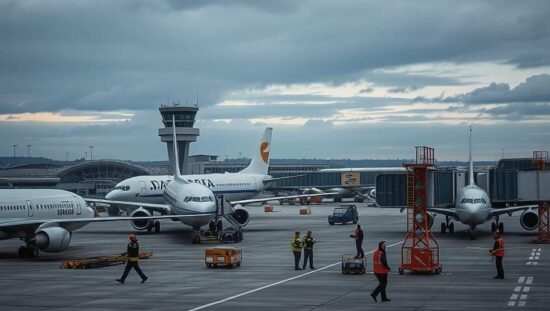The German aviation sector has welcomed the agreement reached late Thursday within the governing coalition, signaling a significant shift in the government’s approach to the industry and, crucially, reversing planned tax increases. Joachim Lang, Managing Director of the German Aviation Association (BDL), lauded the move, stating that the government had “kept its word” in halting the years-long escalation of taxes and fees impacting air transport originating in Germany. He characterized the decision as “an important signal” for the sector.
The relief measures, which the BDL estimates will reduce state-related location costs for German aviation by approximately ten percent, represent an attempt to bolster Germany’s competitiveness in a fiercely contested European market. However, the BDL’s response, while largely positive, also contained a veiled caution. Lang emphasized the necessity of “further steps” in the coming years to ensure Germany can fully participate in the ongoing boom in European air travel. This implicitly acknowledges that the current agreement, while helpful, may not be sufficient to address long-term structural challenges.
The agreement also includes improvements for air cargo, specifically through streamlining processes and leveraging digitalization within relevant authorities. This element is strategically important, aiming to maintain the connection between Germany’s export economy and global markets – an area where the aviation sector plays a vital role.
Political analysts suggest the decision reflects a growing awareness within the government regarding the precariousness of Germany’s aviation industry. Facing rising operational costs, intense competition from neighboring countries and continued pressure to reduce carbon emissions, the sector had become a potential drag on economic growth and a source of job losses. While the tax reversal is a significant win for the industry, critics remain skeptical about the long-term efficacy of the relief package; further government investment and a clear, consistent regulatory framework will be essential to securing the industry’s future contribution to the German economy. The BDL’s cautionary tone underscores that the current agreement may merely represent a temporary reprieve rather than a definitive solution to the sector’s multifaceted challenges.





